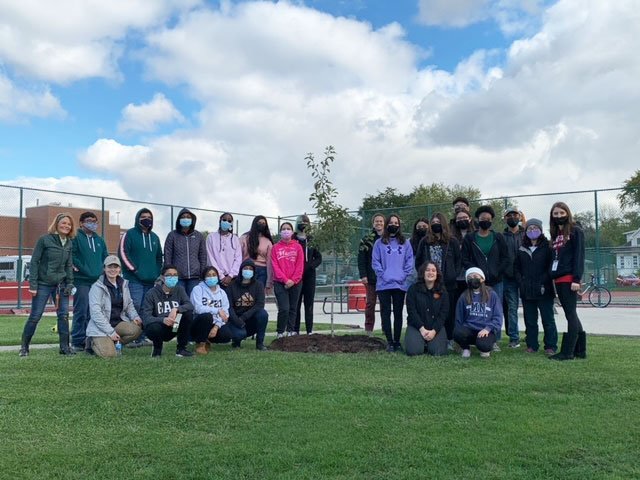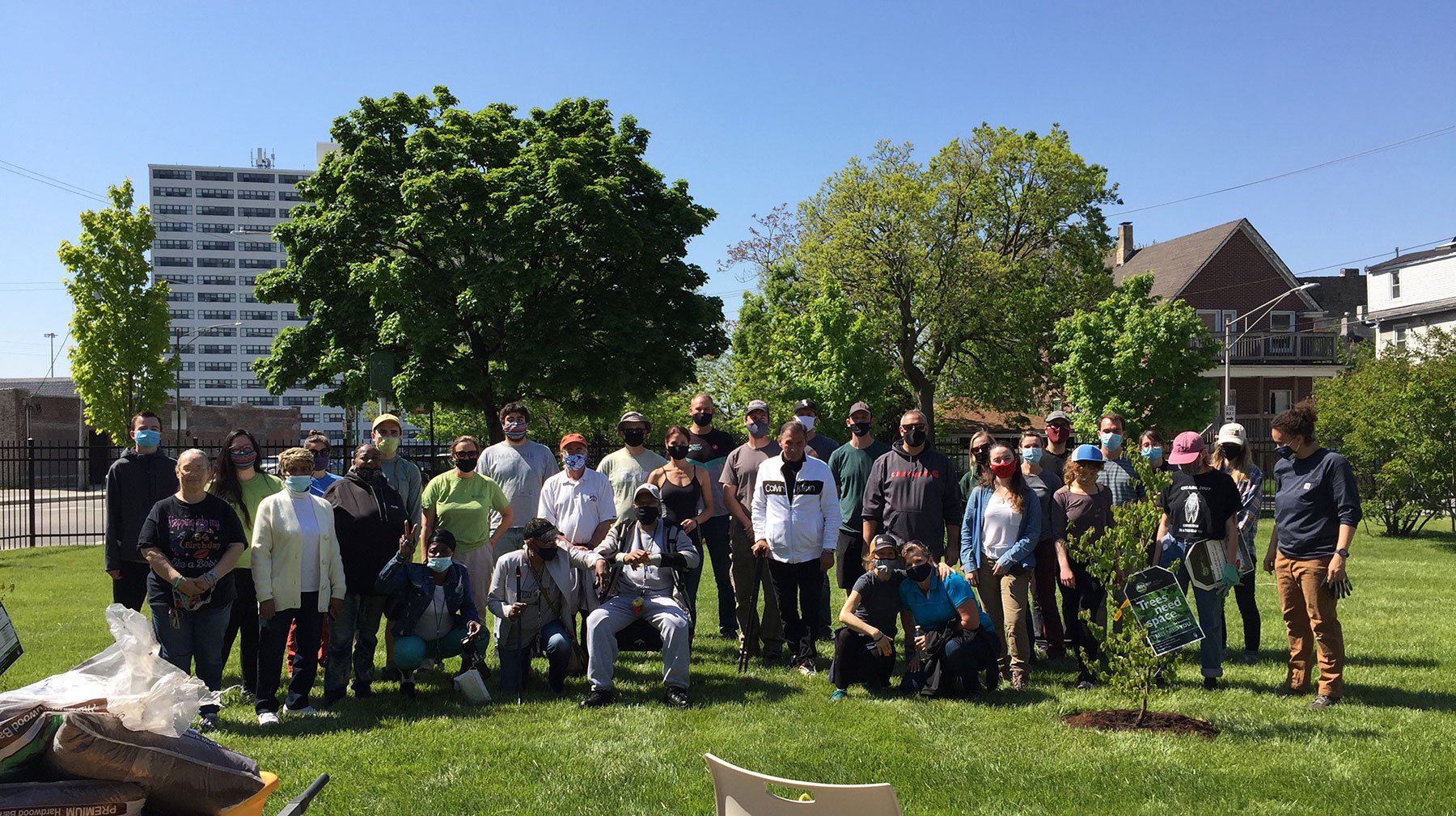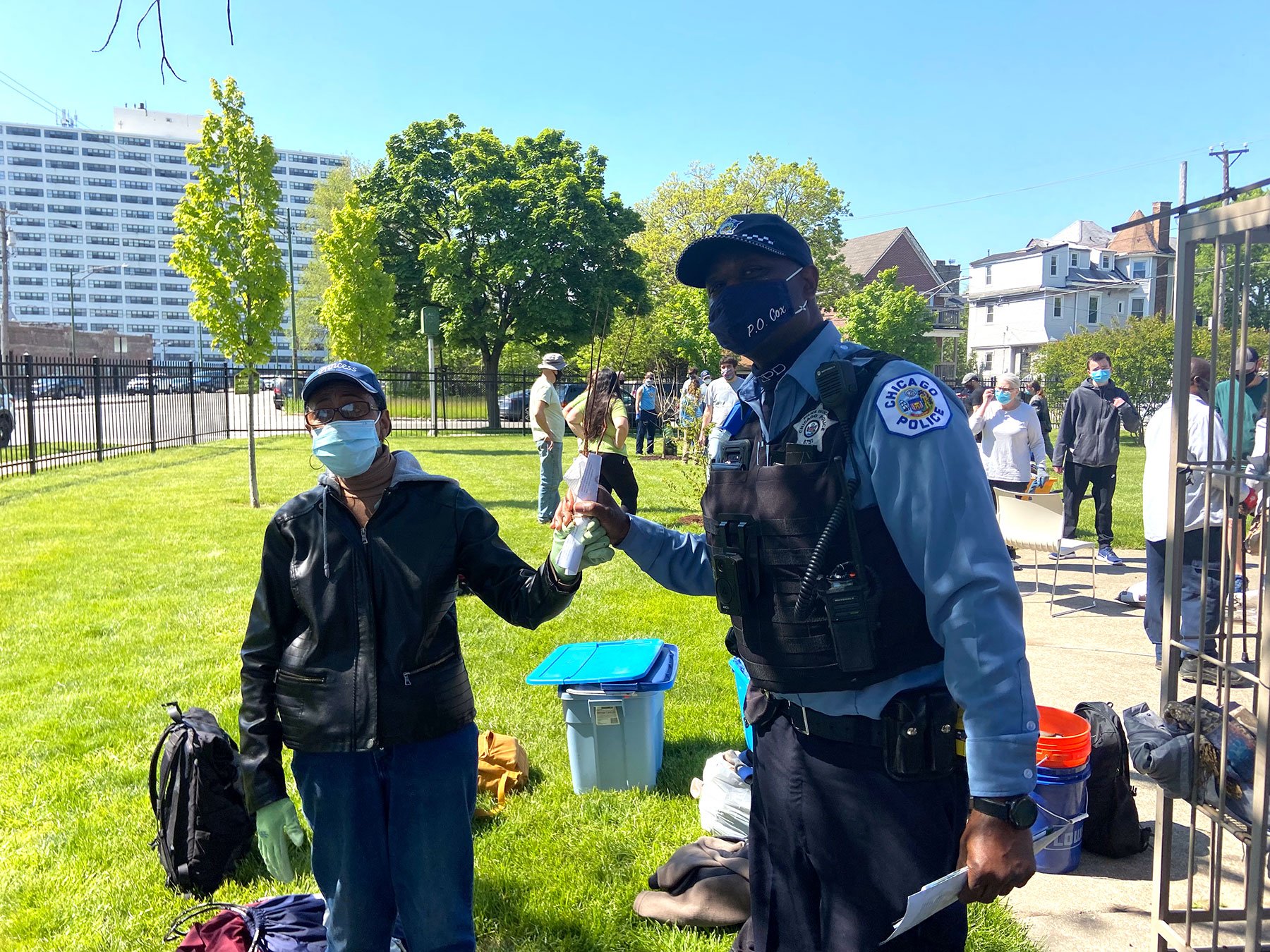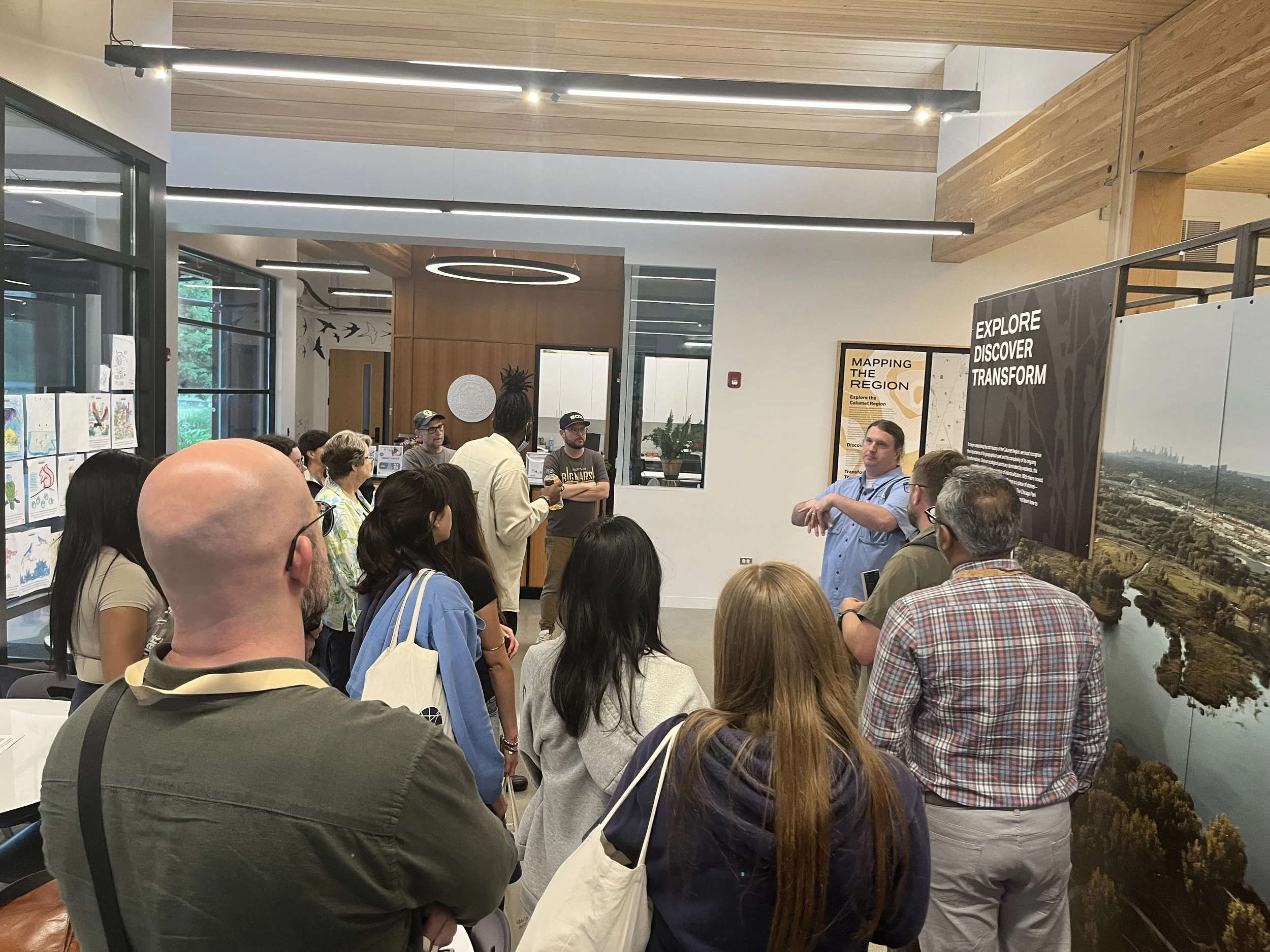Urban Trees Are Under Threat
The Chicago Region Trees Initiative (CRTI), a project at The Morton Arboretum, estimates that in order to combat the impact of disease and climate change, we need to plant 22 million trees by 2050. (Photo credit: CRTI)
Chicago Region Trees Initiative is doing something about it
In recent decades, the Chicago region has lost millions of trees to disease, pests, and extreme weather. And that’s before you even add the number lost to general urbanization and construction in one of the U.S.’s largest cities.
“The ability of communities to reduce heat islands, save energy, manage flooding and improve air and water quality is directly tied to the number and quality of trees in our urban forest,” said Lydia Scott, director of the Chicago Region Trees Initiative (CRTI) at The Morton Arboretum.
That’s why her network is committed to leading the charge for coordinated action to save our urban trees. With support from Walder Foundation, since 2020, CRTI has engaged 54 corporations in sustainability partnerships to fund local programs, contracted with small local nurseries to plant new trees throughout the region, helped local schools create vegetative buffers to protect children from highway pollution, and is piloting a first-of-its-kind carbon credit sale.
Established in 2013 by the Morton Arboretum, CRTI is a collaborative of nearly 200 organizations in the Chicago region, including Openlands, Metropolitan Water Reclamation District of Greater Chicago, Forest Preserves of Cook County and the Illinois Green Industry Association. It is the largest partnership of its kind in the United States.
“Together, we can be a driving force in developing a greener, healthier and more equitable Chicago region,” said Scott.



Engaging corporate partners in saving urban trees
Many Chicago communities lack the capacity to plant and care for trees, particularly in the face of COVID-19 budget cuts. At the same time, many Chicago corporations have corporate sustainability goals to meet and are looking for ways to get more involved in the local community.
Enter: CRTI’s corporate sustainability program, which has helped 22 local corporations launch sustainability partnerships since 2020. Corporations can fund projects such as community tree plantings, park rehabilitation, and woodland ecosystem restoration, as well as larger, region-wide initiatives.
In Englewood, for instance, WestRock, in partnership with the Arbor Day Foundation, and Oak Street Health, funded a tree-planting and seedling distribution program at Lafayette Terrace, an affordable housing site located just 160 feet from a major expressway. The apartment complex’s senior residents, in particular, were excited to share photos afterward of their vibrantly growing house plants and spoke of how excited they were to spend more time outdoors caring for their community’s new trees.
“Each of our seniors at Lafayette Terrace has a story to tell. The planting of these trees will allow them to leave a living legacy standing long after they depart this physical earth,” said Annette Jones, former Lafayette Terrace Project Manager. “Trees will also not only provide added beautification to the property, but shade for our residents to enjoy their courtyard. They will take special pride in knowing they had a hand in this project and will take special care in ensuring the trees grow up healthy.”
Corporate volunteers from Euromonitor and Coeur Mining participated in the initial planting day as well, and local police officers also stopped by to learn more about community sustainability.
Creating vegetative buffers to protect city students
At least 26 Chicago schools sit within 500 feet of a major expressway–-with some located on off-ramps with cars passing by all day, emitting fumes that harm the health of children learning and playing nearby. Fortunately, nature offers a simple solution: planting evergreen trees as buffers can reduce some 50% of the pollution that would otherwise end up in children’s lungs.
Armed with this information, CRTI recently partnered with the EPA and the Environmental Law and Policy Center to develop a toolkit to help schools create a vegetative buffer between their buildings and the roadway. The toolkits include tactical tips for how to engage communities and students in planting and maintaining these buffers, as well as sharing lesson plans on air quality and planting soils, plus shovels, soil testing kits, and tape measures to equip them to ‘dig in’ and get started.
CRTI has also shared the toolkit with the Illinois Department of Transportation (IDOT) staff–which, after just one meeting, led to their team taking the lead on installing buffers at two neighborhood schools.
Up next? The CRTI team is headed to Springfield to advocate for government leaders to take more responsibility like this throughout the city and state.
Innovative carbon program to generate funding for trees
For corporations and other entities looking for an easy financial way to offset their carbon footprint, purchasing one carbon credit offsets the equivalent of one metric ton of carbon dioxide, according to the nonprofit City Forest Credits.
Through a new program dubbed the Chicago Region Carbon Program (CRCP), developed with funding from the Walder Foundation and the Gaylord and Dorothy Donnelley Foundation, it is now easier than ever for Chicago businesses to purchase carbon credits that will directly offset their impact on the local area. Under this innovative setup, urban forest landowners in the Chicago region can enroll in planting and preservation projects. Credits and costs are determined based on the species of trees, where they are planted, and the projected potential of those trees to store carbon. City Forest Credits experts then verify the assigned credits, and certificates for those credits are issued to landowners who can sell them to fund urban tree planting and management. (Read more about the carbon credit sale for two projects that generated more than $300,000 in revenue.)
“This program will offer a revenue stream for Chicago area municipalities, forest preserves and other larger scale tree and forest owners that can be used to improve the health of the region’s trees, directly benefiting its residents,” said Scott.
The Chicago Region Trees Initiative is a project funded through Resilient by Nature Project (RxN), a community of practice led by Walder Foundation that aims to expand the role of nature in our neighborhoods to improve health and quality of life, provide economic opportunities, and build resilience to the impacts of climate change. Learn more about this work.
Get more stories like this delivered to your inbox.
Sign up with your email address to receive news and updates.










